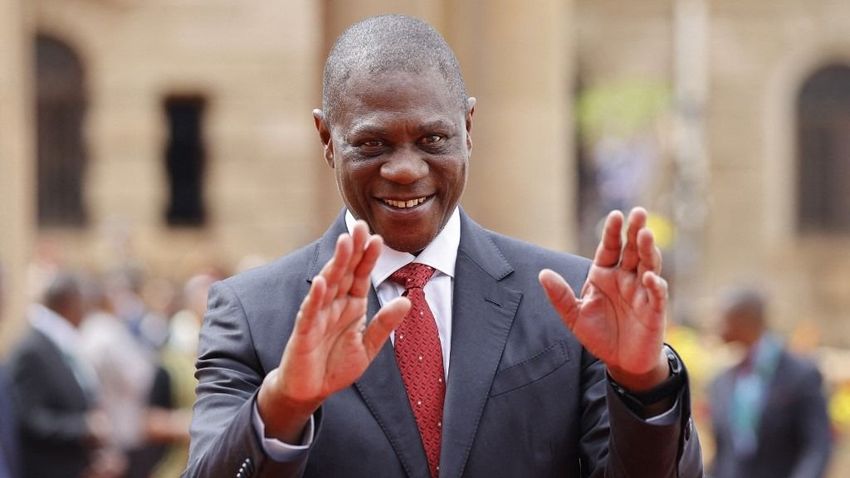According to a statement by South African Vice President Paul Machatel, the leaders of the BRICS countries, at their meeting that begins today, Tuesday, will focus on possibilities of reducing exposure to the dollar, and to this end, they will also discuss the expansion of the bloc and the strengthening of multilateral bodies. bloomberg.
Photo: AFP
The most important item on the summit agenda of the BRICS bloc – Brazil, Russia, India, China and South Africa – will be to expand the list of member states. Since the group was established in 2010, more and more countries have announced that they will join, but so far no one outside the original five countries has been accepted.
And the world cares about this bloc because we are at the forefront of the global economy. We are not here to compete with the West, but as far as global trade is concerned, the world needs to get rid of its dependence on the dollar
Mashatel told the business leaders who attended the meeting. The group is currently looking for ways to boost payments in member countries’ currencies to compete more closely with the dollar and the geopolitical power of the United States.
Given the strengthening of the role of the BRICS group, the French bank BNP Paribas wrote in its note in June that the conditions are ripe for a decline in the dominance of the dollar in trade, but unlike the bloc, according to them, this will only be a “slow, gradual burn”. Based on the number of applicants, analysts estimate that the expanded group will account for about half of global production by 2040, which would be about twice the share of the Group of Seven.
I want to buy from India – why do I use dollars? The BRICS community will create a payment and settlement system so that I can buy anything in India or Brazil without having to rush out for dollars.
Former Nigerian President Olusegun Obasanjo told the crowd, which greeted the statement with loud cheers.
However, deep divisions among members have so far prevented them from reaching a consensus on this key issue, with which they can gain more influence in institutions such as the International Monetary Fund, the World Bank, or the United Nations Security Council.
During its eight years of operation, the Development Bank provided the BRICS group with only $32.8 billion, which is a small part of the amount disbursed by the International Monetary Fund or the World Bank during that period.
Hence, strengthening the group’s multilateral institutions will be a priority topic at the summit, and the participants are confident that through appropriate investments and joint ventures, differences among members can be mitigated.












































